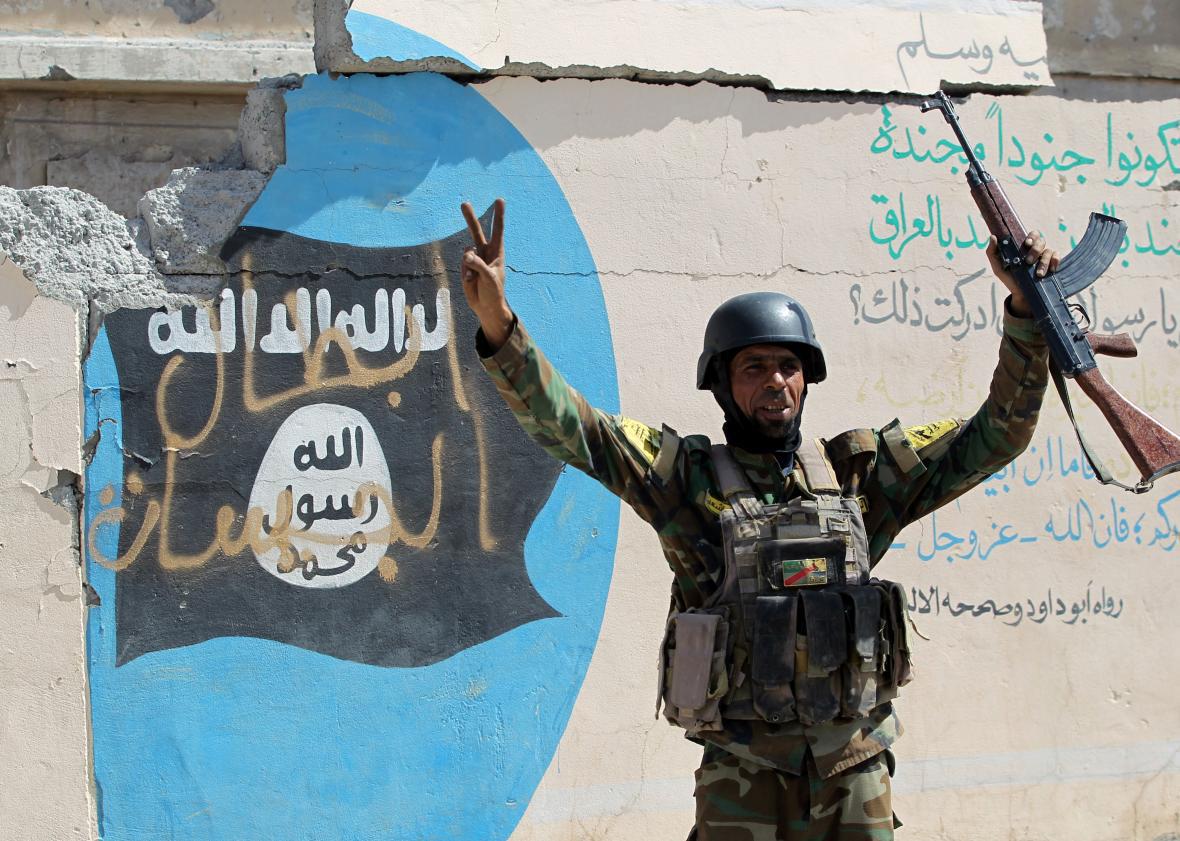In the summer of 2014, ISIS fighters captured the Syrian village of Dabiq, near the Turkish border. The town doesn’t have any particular military significance but plays an outsized role in ISIS’s apocalyptic propaganda: According to one of the group’s favorite prophecies, the Prophet Muhammad predicted that the Day of Judgment will come after Muslims defeat “Rome” (a stand-in for Christian invaders) at Dabiq before conquering Constantinople. Despite its marginal strategic importance, ISIS heavily fortified the town and promoted that prophecy, particularly in propaganda aimed at international recruits; the group’s English-language magazine is called Dabiq. The entry of the United States and other “crusader nations” into the conflict only raised expectations that the final showdown at Dabiq was nigh. But over the weekend, ISIS lost control of Dabiq after a short fight with Syrian rebels backed by Constantinople’s current tenants, Turkey. It appears the Day of Judgment will have to wait for a bit. The Islamic State’s own end times, however, are upon it.
After months of buildup and political maneuvering, the battle to retake Mosul from ISIS has now officially begun. It was ISIS’s conquest of the Iraqi city in 2014 that woke up the world to just how powerful the group, once dismissed by President Obama as al-Qaida’s “JV team,” had become. Its defeat there would put an end to its days as a significant territorial force within Iraq.
The group fighting to retake Mosul is an unwieldy one, including about 30,000 Iraqi government troops, 4,000 Kurdish Peshmerga, Sunni tribal fighters, and Iranian-backed Shiite paramilitaries. The U.S. is providing air support, and American Special Operations troops are acting as advisers on the ground.
The Obama administration would no doubt love to have a victory in Mosul in the bag by Nov. 8, but it’s very difficult to say how many weeks or months the operation will take. The battle will be a major test of just how powerful ISIS is these days. What does seem clear—Donald Trump’s doubts notwithstanding—is that ISIS won’t be able to hold out forever. And with momentum slowly building toward a battle to retake its de facto capital in Raqqa, Syria, and the group’s Libya affiliate currently making its last stand against government forces, the Islamic State’s days as anything resembling a “state”—a political entity capable of controlling territory and enforcing laws—are numbered.
Unfortunately, ISIS’s final days will likely be just as painful and destructive as its emergence. In some previous battles, ISIS fighters have simply melted away from cities to regroup elsewhere, but in Mosul, it looks like they’re digging in for a long and gruesome fight. As with previous Iraqi cities where ISIS decided to stick, there may not be much left of Mosul by the time the battle is over. According to reports, ISIS has spent recent days rigging streets with bombs and other booby traps. Last week, they reportedly put down an attempted uprising by the city’s residents, executing 58 people by drowning. The U.N. has warned that more than a million people could be displaced by the fighting.
There are other risks. The defeat of ISIS has been the closest thing to a unifying project for Iraq’s fractious ethnic and religious groups. With the central government’s authority weak in much of the country, there is a serious danger that the sectarian militias involved in “liberating” Mosul could turn on each other once ISIS is gone. In northern and eastern Syria, where the government’s authority is basically nonexistent, those risks are even more acute. The recent entry of Turkish troops into Iraq, against Baghdad’s wishes, and Turkish-backed rebels into Syria, aimed at containing Kurdish gains, indicate that Turkey is already starting to plan for how to protect its interests in a post-ISIS world.
It’s also important to remember that ISIS is unlikely to disappear even if it is routed from all the cities it currently controls. The group is laying the groundwork in its propaganda for a transition from a territory-controlling pseudo-state to a more traditional terrorist network, planning attacks both within the Middle East and abroad. The example of some other groups indicate that it may actually become more dangerous internationally as its shifts its focus away from controlling land.
Obama famously declared ISIS to be “contained” in November 2015, just a day before one of the worst terrorist attacks in European history hit Paris. He—or his successor—shouldn’t make the same mistake once Mosul finally falls.
